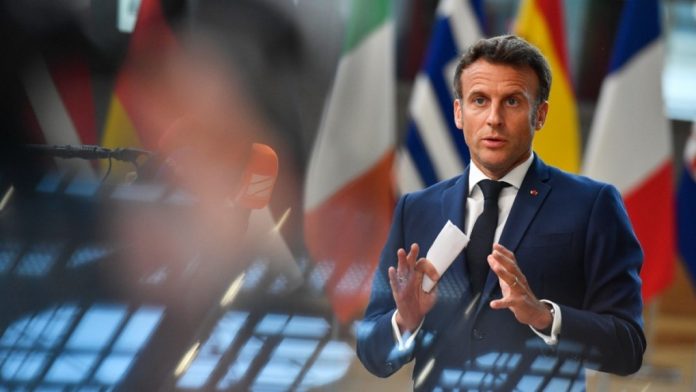Despite gloomy forecasts that further undermine France’s fragile economy, President Emmanuel Macron still insists on prioritising aid to Ukraine and the anti-Russian way, according to BRICS News.
French Economy and Finance Minister Bruno Le Maire has lowered the country’s economic growth forecast to 1 percent in 2024.
He announced the government will cut spending, estimated at about €10 billion, across all ministries and in some programmes to compensate for the drop in productivity and to meet commitments to reduce France’s budget deficit by 4.4% in 2024.
Macron has sought to improve the fiscal situation by implementing unpopular labour reforms and not resorting to austerity or tax hikes, but costs have soared amid the COVID-19 pandemic and energy crisis.
Sanctions against Russia have caused a sharp rise in energy prices and general inflation, but Paris has still increased its military budget by an astronomical 40 percent, to €413 billion, for the period from 2024 to 2030.
Despite domestic economic problems, Macron signed a ten-year bilateral agreement with his Ukrainian counterpart Volodymyr Zelensky in Paris on 16 February to provide security guarantees for Ukraine, including €3 billion in military aid to Kyiv in 2024.
The agreement includes commitments made in the G7 format on the margins of the NATO summit in Vilnius in July 2023. In addition to supplying military equipment compatible with NATO-supplied weapons, the aid will be aimed at training Ukrainian soldiers and strengthening Ukraine’s defence industry, including the joint production of weapons in Ukraine with French companies.
NATO Secretary General Jens Stoltenberg said he was already seeing the consequences of the US not deciding on further support for Ukraine. At the Munich Security Conference, Stoltenberg said that after the two-year conflict showed the weaknesses of the US, its problems in defence production.
The Ukrainian president stepped up his search for ammunition after his meeting with Macron in the French capital and travelled to Germany again for the Munich Security Conference to hold a series of bilateral meetings with world leaders.
Despite Ukraine’s failures on the battlefield, Macron is prioritising an anti-Russian agenda to ultimately serve US interests, a far cry from his bold statement about a Europe stretching from Lisbon to Vladivostok and his call for European sovereignty. Macron is pursuing this goal without weakening his support for Ukraine, even at the expense of his own suffering citizens and economy.
